Crazy? Maybe!
I’m your local crazy herb lady. But truthfully, as a herby friend of mine told me just this past weekend – maybe we aren’t the crazy ones after all – all the hours spending pottering about in my herb garden and foraging wild greens, and bubble-bubbling in the kitchen, cemented a wealth of experience and knowledge that is very much in demand these days!
I love herbs
I love herbs. They’re my ikigai – Japanese concept roughly translating to ‘Reason for waking up in the morning’. And this – talking to others about herbs is my meraki – Greek for ‘Bit of yourself, your soul that you put into your work.’
I am a nature child, animal-carer, tree-hugger, moon-watcher, and my blood runs green, I love plants. But I love herbs the best. Not only are they beautiful in the garden, ornamental specimens in their own right, and fun to cultivate and grow, but then… then you get to harvest them, and bring them inside your home, and create foods, medicines with them, things that become a part of you – it is simply magical!
I was asked to tell a story, and in a time where the media, the mainstream media at least, is full of stories that create fear, worry, mistrust, my story, I think, is one of hope and joy. My story is also as old as humankind and will continue to be told far into the future as long as there is a relationship between man and plant. My story smells and tastes good too (well mostly!) because my story is about food and medicine plants. It is not a story as much as a call to action – with simple and small steps we can take back our power – stop abdicating the responsibility of our health onto systems that don’t seem to really care. Let’s take charge of our own health and wellbeing!
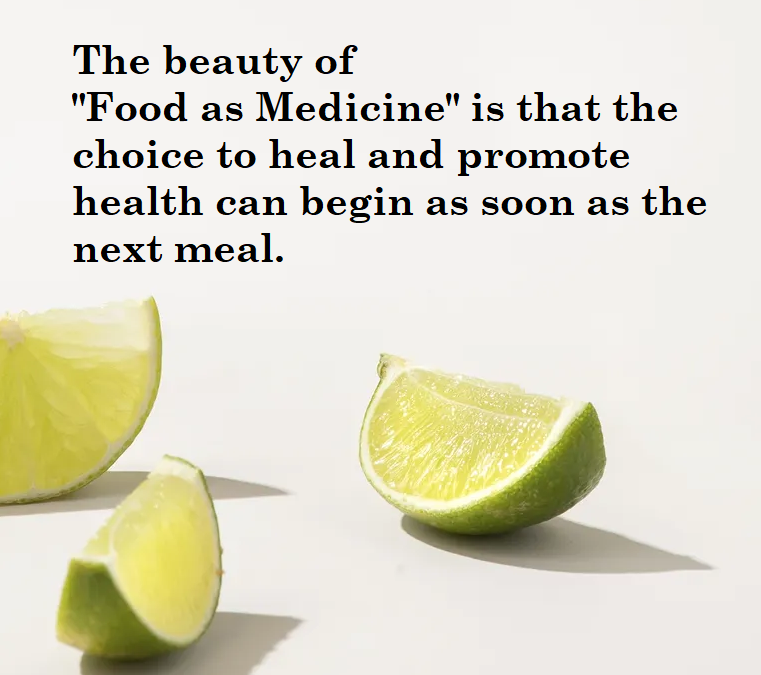
Food is more than medicine
A few points:
1. Food is not just medicine
Food is so much more than just nutrients and chemicals. If we think of food just as medicine, we loose much of what the act of creating and consuming meals can offer. If it was just daily nutritional needs we’d have swallowed pills each morning with our vitamin, mineral and calorie requirements. But food is also connection, it is creativity, it is comfort. Convenience food and fast food has robbed us of some of those qualities already – have a family meal, a lunch date with a friend, a solitary picnic in the park, and enjoy good food…your body and soul will thank you for it.
2. Just food is not a medicine
Firstly, let’s not eschew modern medicine -it is because of the advancement in real science and good hygiene that we are, as Homo sapiens sapiens, able to live to a good age of over 80 years. It used to be only 35. Medical procedures and medicines I’m sure has made it possible for a lot of us to be here tonight. But that said, I think pharmaceuticals are overprescribed and too easily prescribed for common home-remediable ailments…
But it’s more than that too. Food and nutrition is only one part of a line-up of defense – to be in the strongest physical health you can be to combat the onslaught of whatever bacteria and viruses are thrown at you. One aspect alone does not work quite so well without the others, so even if you have the best and freshest regime of healthy foods, be sure to also:
: breathe – not just when you are angry, but take deep breaths throughout the day. Recent studies show we are all breathing wrong! Yes, something that should come as a no-brainer, turns out to be something you can improve on, and it will have positive effects on your mental and physical wellbeing.
: drink water – there’s a meme going around that says “Remember to get plenty of water and sunshine, you’re just a glorified houseplant” And it’s pretty true! We are all mostly dehydrated. Drink more water. It seems silly that a thing like a bit more H2O can have such an impact but it does, study after study shows that being well hydrated means better physical wellbeing and mental health.
: get some headspace Here we are talking mental health. Mind-body connection is real. Mind over matter is real. Look after your mental health. Meditate. Take time out. It is more important in today’s life where we are bombarded with stuff everywhere we turn.
: exercise And here, thankfully!, we’re not talking hours at the gym or grueling jogs or cycling for kilometers. Just walk. Walk as much as you can. Park far away from the mall entrance. Take the stairs not the lift. But better yet – walk in nature. Every day. Just for 20 minutes. In some Scandinavian countries nature is prescribed as a medicine, and in Japan it is called forest bathing, and it works.
: social connection – we are social beings and need to be part of a group or groups. Even if you are an introvert and recharge in calm quiet spaces, you need to be among others some of the time too. The longest living communites have all these things in common and particularly gathering (over good food) with those they enjoy being with.
: nutrition and this is where good food (and herbs!) become important.
3: Not food is not medicine
And by this I mean food-like products. Those boxes and bags of processed foodstuffs that line our supermarket shelves. This is an entire talk on its own, so I wont go too much into it, but suffice to say that I want each of you to become an informed consumer. Check labels, read ingredients, get to know what it actually is that you put into your body. And if something natural has been processed and stripped of its natural goodness so much that it has to be fortified again before selling – be ware! I got to read and understand all the E numbers and additives recently and some of them are not only NOT nutritive, ie not adding goodness to you, they’re actually quite bad for you.
4. Enjoy indulgences
Enjoy real food. Fresh food. There’s a zillion fab recipes out there. Eating good doesn’t mean boring meals or hours of preparation.
But also – I’m also not saying that you should not indulge – we all love a treat. and when you have it, have it guilt free, knowing that for most part you’re doing a phenomenal job for your body.
5. What we consume is more than just what we eat
Health, like I already touched on, is not just the nutrients we take in. We “eat” with our minds, and our eyes and our ears too. We consume a vast amount of information – more than ever – each day. Be careful of where you spend your time and give your energy and attention to, what you listen to, who you associate with. It all becomes part and parcel of your mental health, which has a great impact on your physical wellbeing.
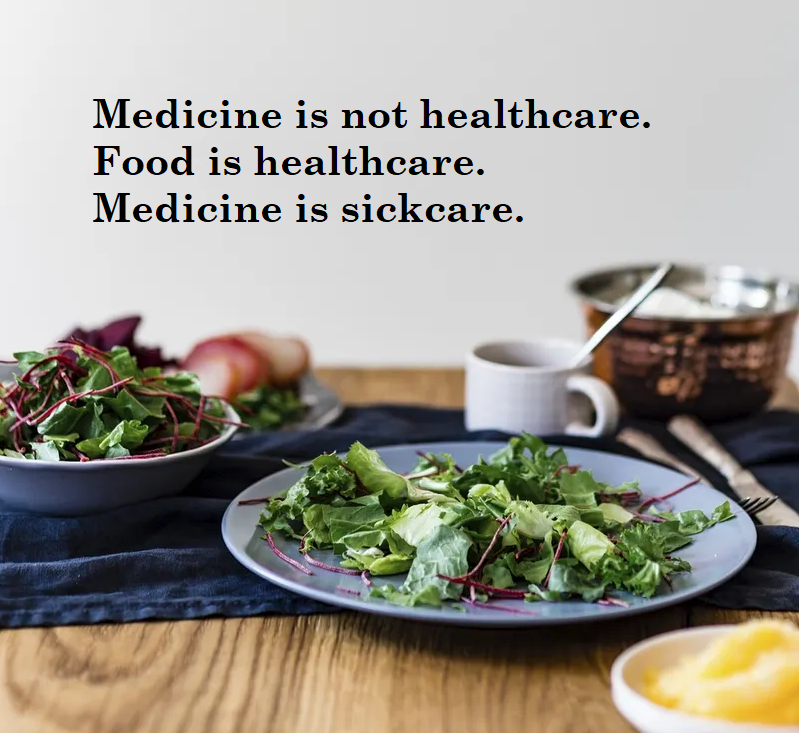
Timeline of Food as Medicine
So back to food.
It’s not a new thing, this idea of food being the building blocks of our health, that food is a medicine, a preventative and a symptomatic relief.
It was our father of medicine, Hippocrates from 400BC that is accredited with saying “Let food be thy medicine and medicine be thy food”. Nowadays there’s some question to whether those were his actual words or not, but I don’t think it matters, because from all his writings, it was most definitely his philosophy, his mindset. And actually, I believe, if you translate the Hippocratic oath, to which medical practitioners still swear this day, it says something like “I, the practitioner, will use dietetic and form to prevent and treat disease in patients” – these days that is simplified to just “I will use treatments”…leaving a whole field open with what a treatment is, and most often it is what can be sold.
Moving along in history, it’s a well told story that the Ancient Roman and Greeks often added herbs – and these are our common culinary herbs of today like Rosemary, Sage, Thyme, Oregano and Marjoram, because they believed these herbs had magical properties to keep evil sprits away from their banquets and the food presented at these feasts. Today we know that the “evil spirits” are simply bacteria and fungi spores that spoil food and make you feel rather ill if you consumed it, and that the “magic” in herbs are the phytochemicals they contain hat are strongly antiseptic, antifungal, antibacterial.
Thinking about these feasts – if you’ve gone to a restaurant and there’s parsley as garnish, eat it! it is probably one of the most nutritious things on your plate!
Also, apparently in Ancient China, in a large estate, the doctor of the house would be afforded an abode on the estate for him and his family, be able to grow a garden for produce, and even keep some livestock, be paid, and have the benefits of protection by the guards of the estate – but only as long as the main family was healthy. His most important job was not to treat illness when it came around, which he did of course too, but his practicing his medicine was to keep his patients healthy.
That is what healthcare should be… I wish modern medicine could be like this again. Proactive and caring rather than reactive and greedy.
Then in 1904, Thomas Edison, a well known scientist, made a predication of the future (about now I’d guess?) where he said, “The doctor of the future will not use pharmaceuticals to treat illness, but will use a good diet and exercise to prevent disease” He was wrong. Sadly. So wrong, as we can account by the big pharma of today. But the sentiment was not far off Hippocrates, and something I think we should all strive for.
Recently, just in terms of the pandemic, I read a study by some austere university on hospitalizations due to the virus, and by far, those vaccinated or unvaccinated, that had good nutrition practices were around 70% less likely to be hospitalized.
Not to talk about following the money – if you have healthcare insurance, then your premiums go down if you can prove you live a healthy lifestyle with good food and exercise choices!
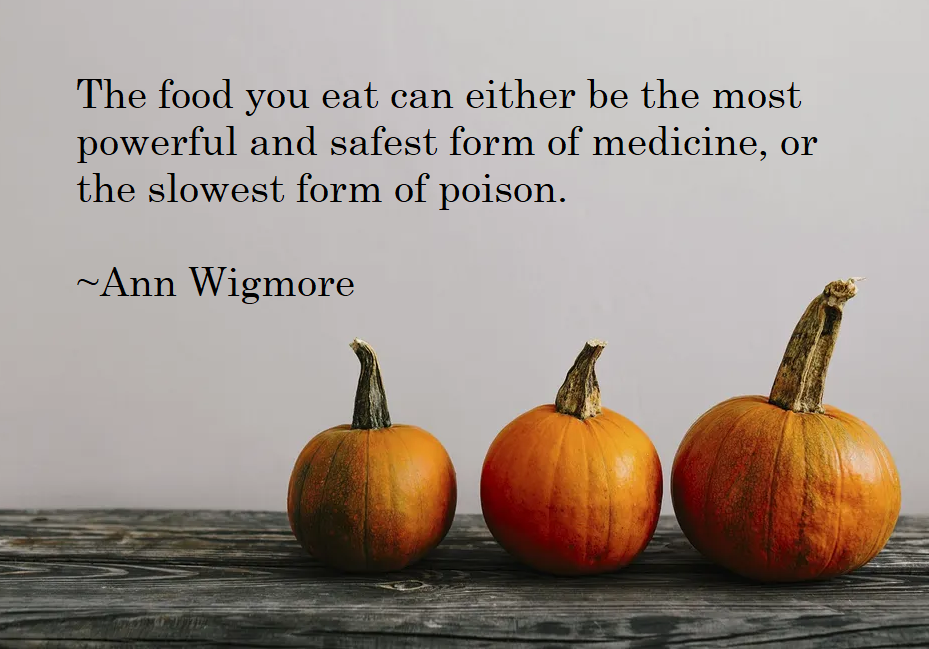
To end...
I can spend hours and hours chatting about easy ways to incorporate healing herbs into our daily life, a few more hours on specific home remedies for ailments when they arise. But tonight there’s just no time left.
I’ll end my story with hoping to get you thinking, inspiring you to soulful gardening for good food and good health,
I love this quote from Jenny Uglow – We may think we are nourishing our gardens, but in reality our gardens (and the produce form there) are nourishing us (in body, mind and spirit).

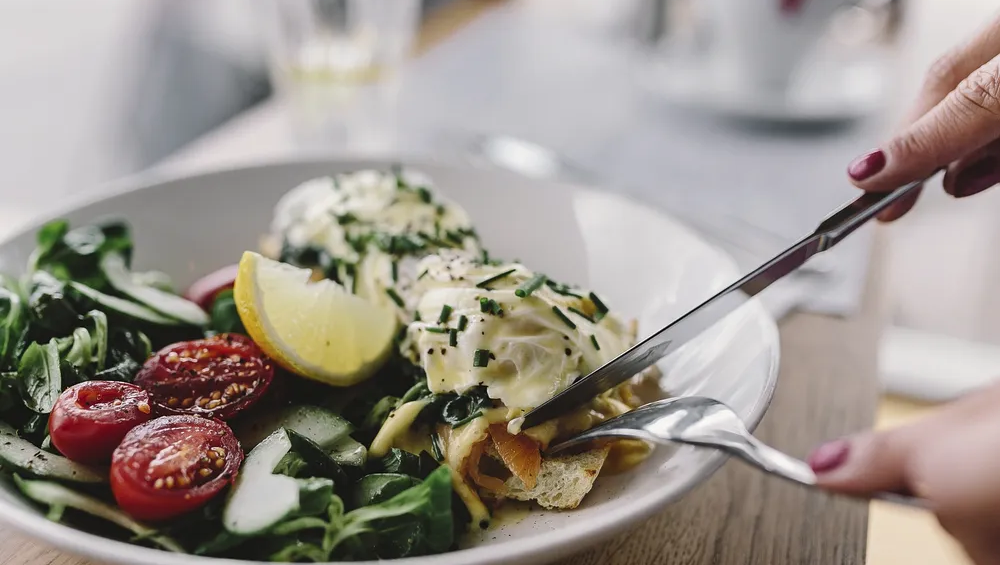
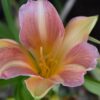
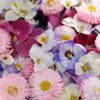
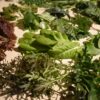
2 Comments
Great read. So disappointed to have missed this.
very insightful with lots of well researched material.